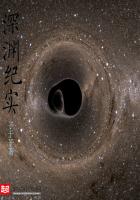There is a sense in which all thinkers, except those of the extravagant schools of Schelling and Hegel, hold a doctrine of relativity; but this is not the same as that elaborated by Hamilton: " From what has been said you will be able to understand what is meant by the proposition that all our knowledge is only relative.It is relative,-first, because existence is not cognizable absolutely and in itself, but only in special modes; second, because these modes can be known only if they stand in a certain relation to our faculties , and, thirdly, because the modes thus relative to our faculties are presented to, and known by, the mind only under modifications determined by these faculties themselves." (Vol.I., p.148.)In these three general propositions, and in the several clauses, there are an immense number and variety of assertions wrapped up: to some I assent, from others I as decidedly dissent.I acknowledge, first, that things are known to us {444} only so far as we have the capacity to know them; in this sense, indeed, even the divine knowledge is relative.I acknowledge, secondly, that we do not know all things; nay, that we do not know all about any one thing.Herein human knowledge differs from the divine: but the word relative is not the phrase to attach to human knowledge; in order to point out the difference, it would be better to say that man's knowledge is partial or finite as distinguished from perfect or absolute.I may admit, thirdly, that man discovers external objects under a relation to himself and his cognitive mind.So much, then, Ifreely allow.But, on the ether hand, I demur, first, to the statement that we do not know existence in itself, or, as he expresses it elsewhere in Kantian phraseology, that we do not know the thing in itself (Ding an sich).I do not like the language: it is ambiguous.I doubt whether there be such a thing as " existence in itself and, of course, what does not exist cannot be known.If he mean to assert that we do not know things as existing, I deny the statement.Every thing we know, we know as existing; not only so, but we know the thing itself, -- not all about the things, but so much of the very thing itself.Then I demur secondly, to the statement, which is thoroughly Kantian, that the mind in cognition adds elements of its own: as he expresses it elsewhere, " Suppose that the total object of consciousness in perception = 12; and suppose that the external reality contributes 6, the material sense 3, and the mind 3; this may enable you to form some rude conjecture of the nature of the object of perception." (Vol.II., p.129.) I allow that sensations, feelings, impressions associate themselves with our knowledge: but every man of sound sense knows how to distinguish between them, and it is surely the business of the philosopher not to confound them, but to point out the essential difference.To suppose that in perception, or cognition proper, the mind adds any thing, is a doctrine fraught with perilous consequences; for, if it adds one thing, why not two things, or ten things, or all things, till we are landed in absolute idealism, or, what is nearly allied to it, in absolute scepticism?
The defective nature of the whole Hamiltonian philosophy comes out in its results.Comparing his philosophy with that {445} of Germany he says: " Extremes meet.In one respect both coincide, for both agree that the knowledge of nothing is the principle or the consummation of all true philosophy, `<Scire nihil, -- studium quo nos laetamur utrique.>' But the one doctrine openly maintaining that the nothing must yield everything, is a philosophic omniscience, whereas the other holding, that nothing can yield nothing, is a philosophic nescience In other words:
the doctrine of the unconditioned is a philosophy confessing relative ignorance, but professing absolute knowledge; while the doctrine of the conditioned, is a philosophy professing relative knowledge, but confessing absolute ignorance."(Dis.p.609.) Surely this is a pitiable enough conclusion to such an elaborate process.A mountain labors, and something infinitely less than the mouse emerges.
I suspect that Sir William Hamilton was wont to meet all such objections, and try to escape from such a whirlpool as that in which Ferrier would engulf him, by taking refuge in belief, -- in faith.And I am thoroughly persuaded of the sincerity of his faith, philosophic and religious.But it is unsatisfactory, it is unphilosophic, to allow that cognition and intelligence may lead to nihilism, and then resort to faith to save us from the consequences.Surely there is faith involved in the exercises of intelligence; there is faith (philosophical) involved, when from a seen effect we look up to an unseen cause.I am sure that human intelligence does not lead to absolute knowledge, but as little does it lead to scepticism or to nothing.Of this Iam further sure, that the same criticism which pretends to demonstrate that intelligence ends in absolute ignorance, will soon -- probably in the immediately succeeding age --go on to show with the same success, that our beliefs are not to be trusted.
The same doctrine of relativity carried out led him to deny that there could be any valid argument in behalf of the divine existence, except the moral one.I acknowledge that the moral argument, properly enunciated, is the most satisfactory of all.I admit that the argument from order and adaptation (the physico-theological) can prove no more, than that there is a living being of vast power and wisdom, presiding over the universe; but this it can do by the aid of the law of cause and effect properly interpreted.The proof that this Being is in {446} finite must be derived from the mental intuition in regard to the infinite.















